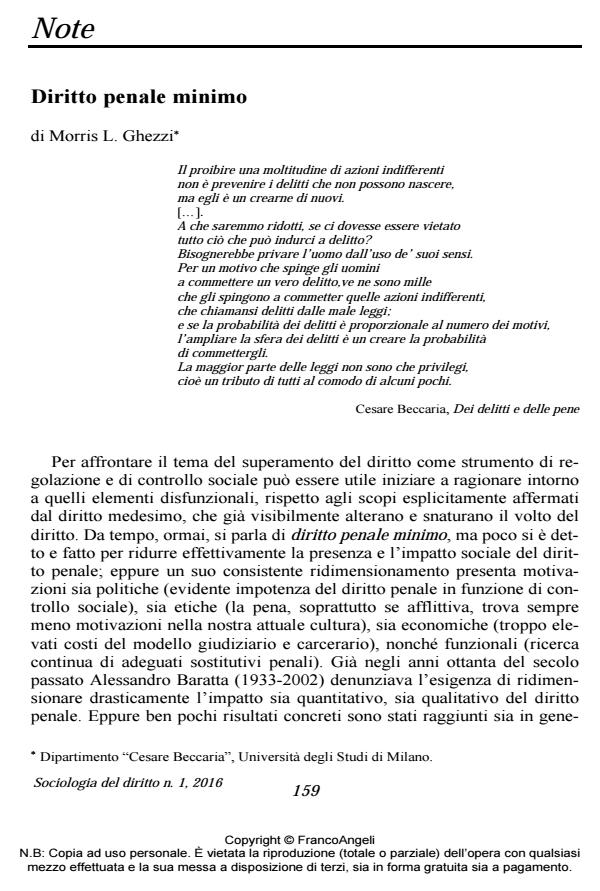Minimal criminal law
Journal title SOCIOLOGIA DEL DIRITTO
Author/s Morris L. Ghezzi
Publishing Year 2016 Issue 2016/1 Language Italian
Pages 7 P. 159-165 File size 132 KB
DOI 10.3280/SD2016-001007
DOI is like a bar code for intellectual property: to have more infomation
click here
Below, you can see the article first page
If you want to buy this article in PDF format, you can do it, following the instructions to buy download credits

FrancoAngeli is member of Publishers International Linking Association, Inc (PILA), a not-for-profit association which run the CrossRef service enabling links to and from online scholarly content.
The time has come to take an organic approach to the issue of minimal criminal law. This is not a question of adjusting the prison penalties established by the law and their duration, but of cleansing criminal law of all those crimes that involve no violence or bloodshed, so by their very nature do not belong under this sphere, but can at the most come under that of civil or administrative law. Today’s sociological problem is the increasing extension of the use of criminal law as an expression of the dominant and totalitarian power of the state and of its arrogant attitude of supremacy over its citizens. For this reason, minimal criminal law is now not only a requirement of a systemic deficiency and judicial logistics, but also an imperative for safeguarding the democratic freedoms that risk being suppressed by an excessive spread of legitimation of the state’s exclusive use of force.
Keywords: Minimal criminal law - Depenalisation - Democracy
- Baratta, Alessandro, 1982. Criminologia critica e critica del diritto penale. Bologna: il Mulino.
- Cordero, Franco, 1985. Criminalia. Nascita dei sistemi penali. Roma-Bari: Laterza.
- Sorrentino, Tommaso, 1999. Storia del processo penale. Dall’Ordalia all’Inquisizione. Soveria Mannelli: Rubbettino.
Morris L. Ghezzi, Diritto penale minimo in "SOCIOLOGIA DEL DIRITTO " 1/2016, pp 159-165, DOI: 10.3280/SD2016-001007